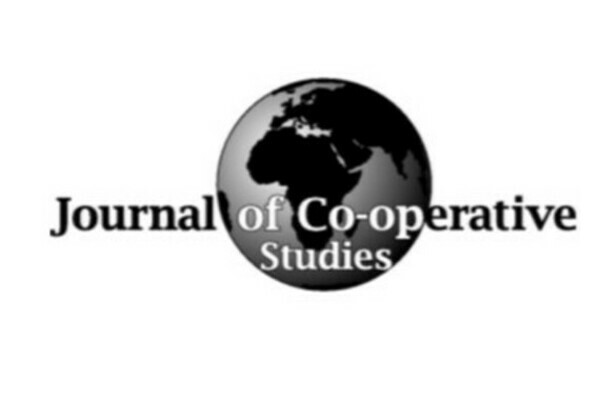Refereed papers
Gung Ho in China: Towards participatory co-operatives
Jenny Clegg and Ian Cook, pp. 4-13
The aims of this paper are to highlight key themes in the variable development of participation in co-operatives in China over time, to describe examples of industrial co-operatives specifically in rural areas, and to examine the resurgence in the co-operative ideal in recent times. Following an outline of the development of the modern system of co-operatives in China during a time of upheaval in the first part of the twentieth century, the focus of the paper turns to the role of Gung Ho and Indusco, the movement of industrial co-operatives, in the war of resistance against Japanese invasion. The discussion then traces the redirection of the co-operative movement after 1949 into collectivisation in the 1950s, and goes on to highlight the revival of Gung Ho in the Reform period with the aid of a recent case study of women’s co-operatives in Hebei province. The case study raises issues regarding present problems and future prospects for the further development of the co-operative economy in China which are considered in the final sections.
Addressing the individualist/communitarian polarity: The values – and the value – of co-operation
Ian MacPherson, pp. 14-21
The co-operative traditions are typically seen as being essentially communitarian and the emphasis is usually on group activities and activism, on collaborative strategies and community-based organisations. It can be argued, however, that co-operative traditions are also about the constructive interplay between co-operative individuality and communitarian interests; that Co-operation and the effective operation of co-operatives depends upon the ways in which individual growth takes place within co-operative community formulations. This paper considers this dimension of co-operative activism through the lens of the co-operative values identified for the International Co-operative Alliance’s Co-operative Identity Statement during the 1990s. It argues that Co-operation’s capacity to harmonise co-operative individuality with communitarian needs, is a fundamentally important contribution to economic development and social peace, particularly in modern times.
Towards co-operative politics: Using early to generate late socialism
Stephen Yeo, pp. 22-35
This paper uses the distinction between politics and anti-politics, deployed by Gregory Claeys in his Citizens and Saints (1989) to define what pre-1850 Owenites and Co-operators meant by ‘socialism’. Building on their anti-politics or ‘associationism’, the paper identifies an inheritance of specifically co-operative politics which may be useable by co-operators in our time. ‘Early’ socialists (a better label for Owenites and Co-operators than ‘utopian’) started from the ‘economic’ world of thought and action; showed the determination and capacity to produce society rather than be determined by it; were committed to education, but in a sense of the word long buried by schools and colleges; and refused to separate moral reformation from social reform in ways not unrelated to many modern ‘extremists’. If we are to develop an adequate ‘late’ (too late?) socialism, by means of modern co-operative and mutual enterprise, it may be worth revisiting Owenism with the help of historians like Claeys who work within the Cambridge school of intellectual history rather than the Communist school of labour history.
Implications of value-driven entrepreneurship in Finnish employee-owned co-operatives
Eliisa Troberg, pp. 36-44
This paper deals with the implications of value-driven entrepreneurship in Finnish employee-owned co-operatives. The current world-wide recession shows the vulnerability of a primarily market-driven economy. Business without ethics and morality is one of the causes of the severe crisis. In addition to financial objectives, companies should take into account people and the environment. This means the realisation of sustainable development as well as new approaches to management and leadership based on moral values.
Conference reports
Can values make a difference? Co-operatives – moving from the Rochdale Pioneers to the 21st Century
Tony Webster, pp. 46-48
A report of the Can Values Make a Difference? Co-operatives - moving from the Rochdale Pioneers to the 21st Century conference that took place from 1-2 July 2009 in New Century House, Manchester.
UK Society for Co-operative Studies annual conference
Ian G Andrews, pp. 49-50
A report of the UK Society for Co-operative Studies Annual Conference that took place at Ruskin College, Oxford, 5-6 September 2009.
Short articles
Building a unique, co-operative alternative in financial services
Neville Richardson, pp. 51-52
As the UK begins to emerge from recession, the reputations of many PLC banks have been severely damaged. Consumer confidence is at an all time low and trust in financial institutions is a scarce commodity. A unique, ethical alternative to the Plc and Government owned Banks has been created through the merger of Britannia Building Society and Co-operative Financial Services (CFS). The new and enlarged CFS is not only financially strong but characterised by being member-owned, customer-led and ethically-guided. With its vision of being the UK’s most admired financial services business, the new organisation is taking shape at a time when the co-operative and mutual sector has never been more relevant.
Book reviews
Living Economics: Canadian perspectives on the social economy, co-operatives and community economic development. Edited by J.J. McMurtry.
Reviewed by Luc Thériault, pp. 53-55
Argentina’s parallel currency: The economy of the poor. By Georgina M. Gomez.
Reviewed by Len Arthur, pp. 55-56










